Kwaidan
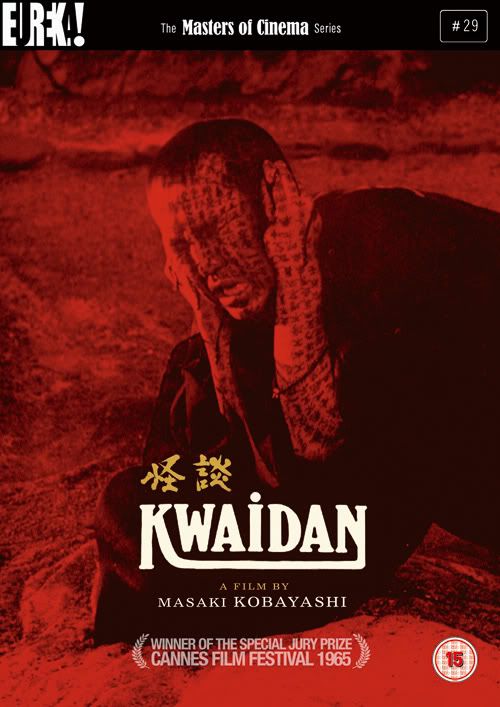
Title: Kwaidan
Rating: 5/5
Genre: Period Drama / Supernatural Horror
Starring: Rentarô Mikuni, Michiyo Aratama, Misako Watanabe
Director: Masaki Kobayashi
Language: Japanese
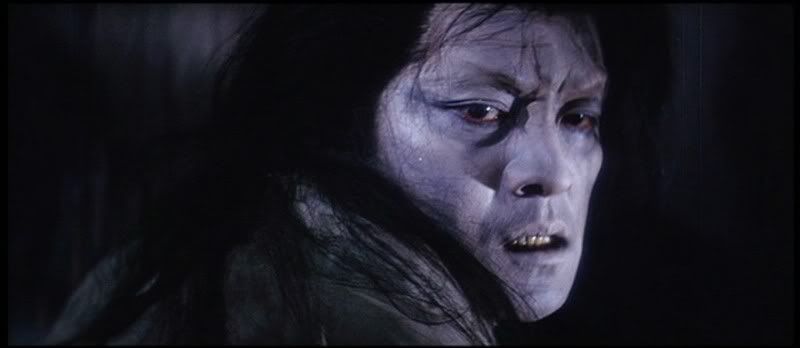 It doesn't happen very often, but once in a while a film will come across your path that leaves you speechless. Kwaidan is a perfect example of such a film; a 3 hour horror epic that i'm at a loss to describe; a masterpiece of film making that by its end will make you want to watch it again so as to re-live those immaculately filmed moments. Released back in '64, when most of Japan was still fawning over "Godzilla," their modern horror film origins were starting to take form. For Japan has a long history of ghost stories, and through this man's masterful vision, he's brought to life 4 classic horror tales penned in the 19th century by a Greek man, Lafcadio Hearn, who lived most of his life in the states before becoming obsessed with Japan - perhaps the original otaku - writing down the folklore tales passed down over the generations for the world to read. Now his work has been transcribed for the world to see; films that by any stretch of the imagination would be challenging now, impossibly ambitious back then, and yet somehow he's succeeded in creating a classic that is still mesmerising almost half a century on.
It doesn't happen very often, but once in a while a film will come across your path that leaves you speechless. Kwaidan is a perfect example of such a film; a 3 hour horror epic that i'm at a loss to describe; a masterpiece of film making that by its end will make you want to watch it again so as to re-live those immaculately filmed moments. Released back in '64, when most of Japan was still fawning over "Godzilla," their modern horror film origins were starting to take form. For Japan has a long history of ghost stories, and through this man's masterful vision, he's brought to life 4 classic horror tales penned in the 19th century by a Greek man, Lafcadio Hearn, who lived most of his life in the states before becoming obsessed with Japan - perhaps the original otaku - writing down the folklore tales passed down over the generations for the world to read. Now his work has been transcribed for the world to see; films that by any stretch of the imagination would be challenging now, impossibly ambitious back then, and yet somehow he's succeeded in creating a classic that is still mesmerising almost half a century on.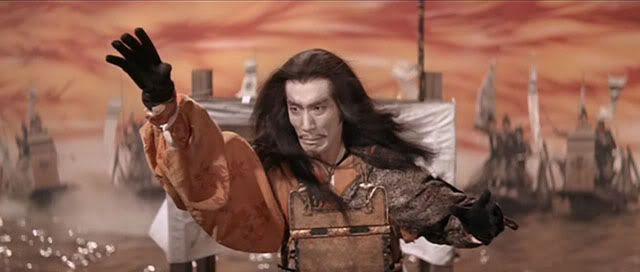 The classic notion of a ghost story is often plagued with that cliche tale about someone who died and now jumps out and goes boo, but not here. Everything takes on a more complex and poetic nature, the use of minimal dialogue emphasising the point being made, or rapidly progressing the plot as required. He never creates characters filled with pure evil and malice to be the nemesis but instead develops protagonists that are all too human, capable of mistakes and causing harm, lightly philosophising on the nature of human desire and its consequences. Even the very nature of the ghosts takes a decisive twist from the usual western interpretation; not invisible spectres but corporeal shadows of their former selves, manipulating your mind to see what isn't truly there to incredible effect.
The classic notion of a ghost story is often plagued with that cliche tale about someone who died and now jumps out and goes boo, but not here. Everything takes on a more complex and poetic nature, the use of minimal dialogue emphasising the point being made, or rapidly progressing the plot as required. He never creates characters filled with pure evil and malice to be the nemesis but instead develops protagonists that are all too human, capable of mistakes and causing harm, lightly philosophising on the nature of human desire and its consequences. Even the very nature of the ghosts takes a decisive twist from the usual western interpretation; not invisible spectres but corporeal shadows of their former selves, manipulating your mind to see what isn't truly there to incredible effect.In fact, he seems fairly determined to defy convention wherever possible and the script is only a small part of that, with the cinematography and effects forming another critical component. The sound as often collides with the visuals as it does as expected, offering a haunting silence or a disconcerting backing score utilising traditional instrumentation in line with the period
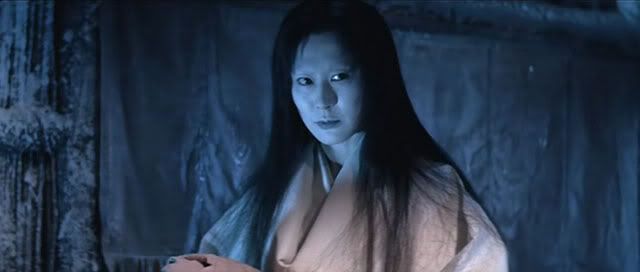 the fables are set, but even this is far from his most potent tool. The acting takes on a theatrical - if at times perhaps melodramatic - tone; the movements precise but again, like the dialogue, is often minimal lending a decisive feel to them, their importance in both their subtleties and extrovert nature juxtaposing one another and lending a powerful emphasis.
the fables are set, but even this is far from his most potent tool. The acting takes on a theatrical - if at times perhaps melodramatic - tone; the movements precise but again, like the dialogue, is often minimal lending a decisive feel to them, their importance in both their subtleties and extrovert nature juxtaposing one another and lending a powerful emphasis.The effects work feels as potent as ever at drawing you in and ensnaring you in the parable being told. The subtle visuals on the characters themselves; their make up and the effects on them, even the details in the scenery changes, backdrops used to show the far off distance conjuring subtle images, combining realism with surrealism all in accordance with the atmosphere aimed for. Neither does he feel compelled to limit himself to the darkness with barely visible creatures using cheap shock tactics to make you jump. He builds up the tension and atmosphere gradually, making use of far more than light and dark but overgrown wildlife and the elements, and anything else he can think of to set the scene.
This feels like a pinnacle of the asian horror industry, the ripples of influence perpetuating out and still influencing the films made today. There are so many classic moments that stand out
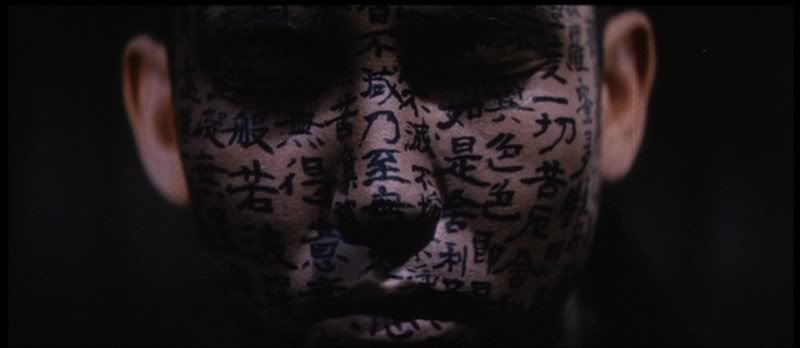 in the mind; the finale of the 'The Black Hair;' visuals of the woman in 'The Woman of the Snow;' the iconic image of the priest covered in holy scripture for 'Hoichi the Earless;' or the sinister nature of the unfinished work 'In a Cup of Tea.' A traditional horror tale of the highest order; it's as though the greatest work penned by Lovecraft or Poe had found itself not just transcribed into film form but given perfect justice in the process. This is a film that came off the heels of the flick that made this man known and it nearly bankrupted his production company, and it's probably one of the best horror films ever made.
in the mind; the finale of the 'The Black Hair;' visuals of the woman in 'The Woman of the Snow;' the iconic image of the priest covered in holy scripture for 'Hoichi the Earless;' or the sinister nature of the unfinished work 'In a Cup of Tea.' A traditional horror tale of the highest order; it's as though the greatest work penned by Lovecraft or Poe had found itself not just transcribed into film form but given perfect justice in the process. This is a film that came off the heels of the flick that made this man known and it nearly bankrupted his production company, and it's probably one of the best horror films ever made.
Comments
Post a Comment